'Super Size Me': The Documentary That Didn't Actually Fix Fast Food Culture
We know what Morgan Spurlock wanted to do with his McDonald's diet, but it still doesn't really hold up after 17 years.
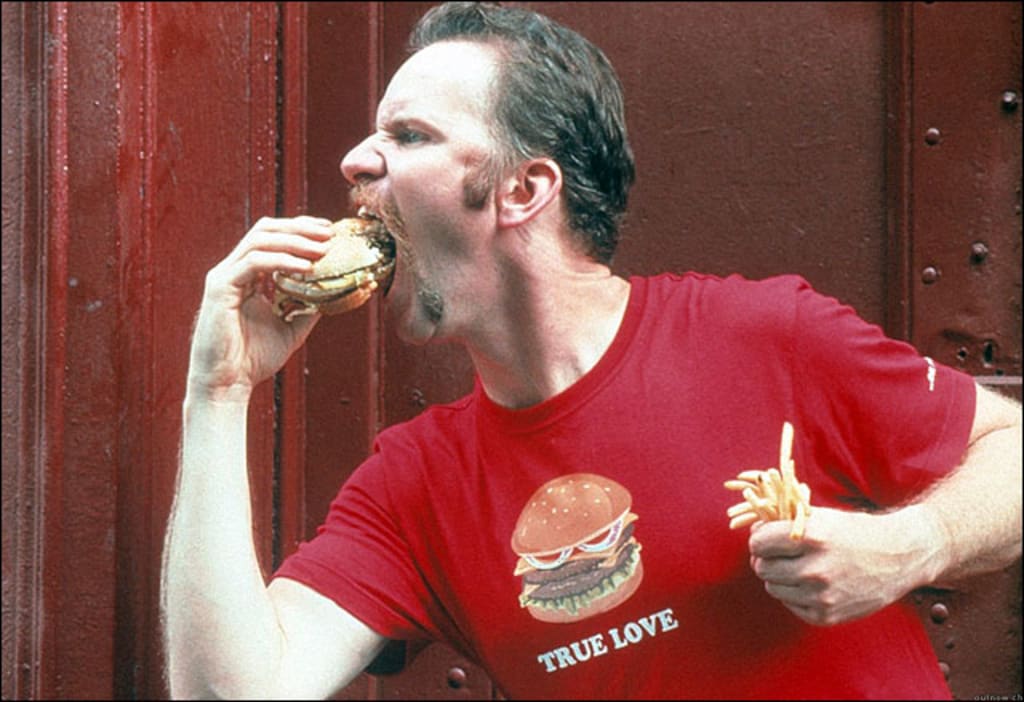
Modern documentaries have really stepped on the gas in the past 15 years or so, especially when it comes to food and the food industry. Many can argue that the catalyst for the food film explosion was filmmaker Morgan Spurlock's 2004 documentary, Super Size Me. In the film, Spurlock sought to see what happens when you eat and drink nothing but items from McDonald's for 30 days.
Spurlock claims he got curious after the United States Surgeon General declared obesity an epidemic and the 2003 "Pelman v. McDonald's Corp" lawsuit in which two overweight teenagers sued McDonald's. The film received positive reviews back in 2004, shining a pretty bright light onto the fast food industry and pointing blame onto them for why so many Americans are obese. However, is that really what it did?
Who Actually Eats Fast Food Like This?
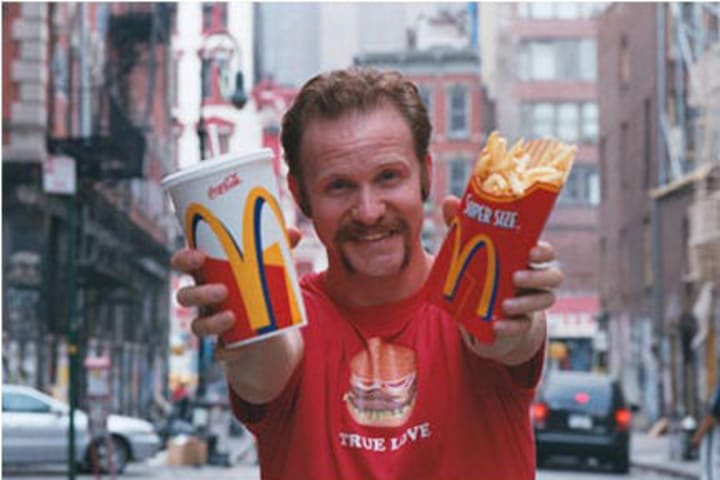
Spurlock's rules to his "McDonald's diet" were fairly simple: All food and beverages consumed must come from a McDonald's restaurant - even the water. He also had to eat three meals a day with breakfast, lunch, and dinner. But in reality, who actually eats like that?
On average, Spurlock ate 5,000 calories a day in McDonald's and if he was asked, he had to super size it. After all was said and done, he gained 24lbs, increased his cholesterol by 230mg, and began to have symptoms of "fatty liver." In addition to symptoms related to a fatty liver, he also experienced mood swings and sexual inadequacy. It took Spurlock fourteen months to lose the weight he gained while filming Super Size Me.
While it's safe to say Americans specifically consume more fast food than we should, it's hardly fair to assume everyone who is overweight eats this much fast food. In reality, the people who are actually on Spurlock's extreme diet are either dead or featured on shows like My 600lb Life. Since Super Size Me was released, many have argued that all the documentary did was perpetuate diet culture and "fat shame."
Did 'Super Size Me' Actually Make Things Worse?
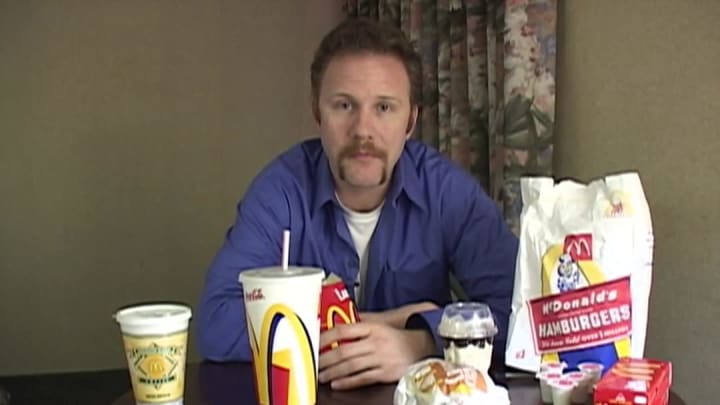
Aside from using himself as a guinea pig to showcase what the food is actually doing to your body physically, Spurlock attempted to showcase how the food also affects your mental health. While mental health wasn't as focused on as it is now in 2004, the way he experienced mood swings and sexual dysfunction at the hands of fast food was a key point that was focused on in Super Size Me.
Even though the lawsuit from the teenage girls failed, Spurlock continued to use it as an example of exactly how the food companies use their products to emotionally manipulate their customers. Even though the food was harming him, he still wanted the food. It was like Spurlock became addicted to the food he knew would harm him.
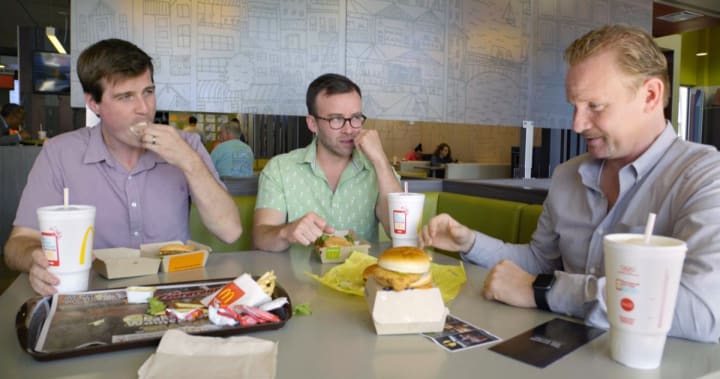
Spurlock touched on this again in his 2017 follow-up documentary, Super Size Me 2: Holy Chicken! With this experiment, he wasn't eating fast food for 30 days straight. He was looking into the fast food industry and seeing how things have changed since he did his McDonald's diet. What he found was basically the same, fried unhealthy food with new terminology and new graphic design. People are still eating the same fast food as before, but now "fried" has become "crispy" and things are described as "fresh" with pretty, green packaging.
It's a curious thought that even after Super Size Me, nothing really changed. It almost seems as if things might have gotten worse as companies have had to work to become even more deceptive with their marketing and ingredient transparency. This is showcased even more in Super Size Me 2 as Spurlock opens his own fast food restaurant and shows how he works with branding experts, food experts, and location experts to learn how to specifically market his food to make it seem not only appealing, but healthier.
What Is Next For Fast Food?
It's hard to say what is going to happen to the food industry as a whole, but in my opinion I don't see fast food going anywhere. Especially with how the COVID-19 pandemic has continued now almost into the year 2022, it seems like food delivery and quick access to fast food has skyrocketed. Not only that, but people seem to be eating whatever they want regardless of the consequences.
The nutritional information might be readily available in a pamphlet at the McDonald's now in 2021, but who is actually reading that when they run in for a quick bathroom break and a Big Mac combo? At the end of the day, Super Size Me is more of a memory of the craziness surrounding American excess, and not really about how unhealthy fast food actually is.
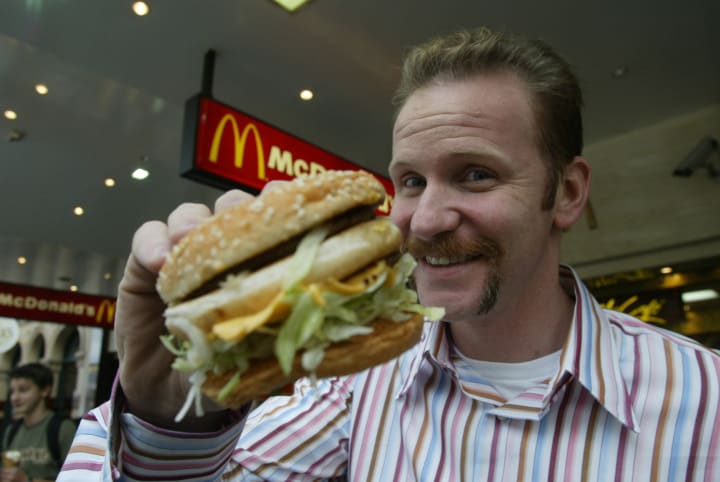
About the Creator
Jenika Enoch
I love movies, music, sci-fi, and art. I'm a certified graphic designer and create my own art. Things that fuel me include equality, respect, and anything weird.






Comments
There are no comments for this story
Be the first to respond and start the conversation.